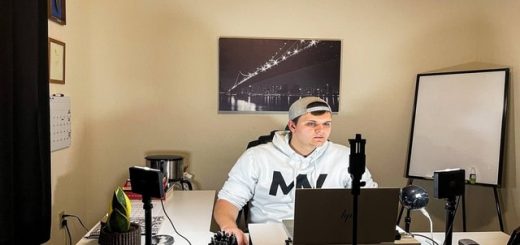How to Invest in Your Future and Become Financially Free
To become financially free, you must be ready to invest in your own self and in your future. Many people set specific financial goals when they begin to invest, however, the highest achievement that can be derived from investing is becoming financially free. Financial freedom has different meanings to different people. For some, financial freedom may mean not having to worry about saving up for a holiday, for others this could mean being free of debt or rent. Its meaning is specific to each individual, their goals and their interpretation of it.

Nevertheless, financial freedom typically encompasses having enough investments and savings that you can afford to live whatever lifestyle you please. One of the largest downfalls that people encounter when trying to achieve financial freedom stems from being underprepared and unorganized. Financial freedom won’t just happen miraculously unless you win big at the lottery or in the casino. In order to reach such a significant financial position in your life, you must first plan how you aim to get there. If you are organized and meticulous with your planning, you will know what your goals are, and whether you are on target.
As we have noted, financial freedom is different for each person. There is no right or wrong way of achieving your own personal financial goals. However, if you want to work towards financial freedom, you must first define what this means to you. Try to create a specific goal, perhaps you have a magic number in your head that you would like to see materialized in your bank account. Write this down and envision your lifestyle under financial freedom. At what age do you expect to achieve financial freedom? You can always come back to these goals and revise them as you go on, however, it is extremely important to have something to work towards.
Within this plan, you should factor in smaller goals that will help you achieve your ultimate financial target. If you hope to reach financial freedom by the age of 50 or 60, it could be a good idea to set smaller goals, that will lead up to this final sum, every ten years. Other goals could include getting rid of debt, be it from mortgages, student loans, or credit cards. This is an important part of achieving financial freedom. There is no such thing as ‘good debt’ and you won’t be truly free until you rid yourself of all loans. List all of your financial debts and start paying them back even if you only pay back the smallest amount each month. Try to cover the largest debts first, regardless of your interest rates.
In order to live lavishly in the future, you will need to learn how to live frugally in the present. You don’t have to be a complete cheapskate in order to reach financial freedom, but you do need to learn how to save an extra buck here or there. We are so used to an overabundance of choice and products that we end up consuming more than is really needed. You can try to adopt a minimal lifestyle and see how your cost of living drops drastically. Many purchases tend to be impulse buys, so make sure you sit down and think whether you really need this new item in your life. If you do, try to negotiate a price or cut corners in some way. For example, you can buy brand-new items second hand on eBay or pick up pre-loved furniture and up-cycle it for a discounted price. Instead of having two or three music or video streaming services, pick your favorite. There are countless ways that you can begin to save money.
After you begin to pay off your debts and set aside some money for savings, you can now start to think about investing that money. Having your money sit in a savings account can offer you a great deal of comfort, however, it will probably take much longer to achieve your financial goals unless you start investing. There are several ways that you can invest your money including, the stock market, bonds, real estate, and many more. You can choose to do this yourself or seek advice from a professional. If you want to know how to buy stocks online without a broker, follow the link for more information. If you are a beginner, do not fret, everyone had to start somewhere. Make sure you do your research before you put your money in the fate of a company or asset.
If you are worried about the risks of investing, this is a good sign, it means you don’t want to be careless with your money. However, you shouldn’t be fearful of investing, only cautious. A golden tip when it comes to investing is to never gamble away more than you can afford to lose. This is where budgeting, saving, and planning all come together to ensure you are making wise decisions when investing your money. Another tip is to research what you are investing in, don’t just go on hearsay or listen to what someone told you at a dinner party. My final tip is to invest on a long-term basis, be patient, and take advantage of the rate of inflation. Long-term investments are much more predictable than short-term investments.
There is no better time than the present, so make sure you start saving and investing as soon as you possibly can. Given that long-term investments benefit from the rate of inflation, lower risks, and less transactional costs, the faster that you begin investing, the higher the potential for a large return. Don’t feel disheartened if you aren’t seeing large returns immediately, investing money takes both time and patience. Don’t forget that you can always revisit your budgeting, saving, and financial goals. As we all know, life is subject to many changes, so it only makes sense that your goals may also fluctuate.




